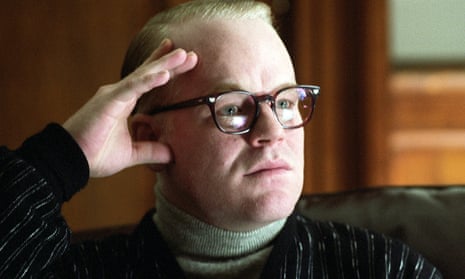In his introduction to a 1973 anthology of literary reportage, The New Journalism, Tom Wolfe lampoons the appalled reaction of the old guard to the blend of literary technique and newspaper reportage which made his name as a feature writer:
These people must be piping it, winging it, making up the dialogue … Christ, maybe they’re making up whole scenes, the unscrupulous geeks ...
It turns out the stick-in-the-muds might have had a point.
Dick Hickock and Perry Smith were convicted in 1959 of murdering Herbert Clutter, his wife and their two children. The pair were hanged in 1965 after a manhunt and trial that gripped the United States. Five months later the New Yorker began publishing an account of this senseless slaughter of a family, and the search for the killers, which had an equally powerful impact. Truman Capote’s essays were published the following year as a “non-fiction novel”, In Cold Blood, and hailed by Wolfe as “a very meticulous and impressive job”.
Now Ronald Nye, the son of a Kansas lawman involved in the murders, is to publish his father’s field notes which he says contradict important elements of Capote’s groundbreaking account.
“Capote had a fact here, and a fact there, and filled in the gaps with literary licence,” Nye said.
According to Nye, his father threw Capote’s book across the room in disgust, calling it “garbage”.
Capote made no notes when he interviewed people for his book, later claiming to have “near-perfect” recall. In his account, KBI (Kansas Bureau of Investigation) agents raced to interview the parents of one of the murderers following a tip-off and smartly extracted incriminating information. But according to Harold Nye’s detailed records, investigators visited the house five days after the prompt, by which time the killers had fled to Florida where they would be implicated in another killing.
Nye suggests Capote played up the role of KBI investigator Alvin Dewey who gave the novelist access to key witnesses and also to the convicted murderers.
Of course, journalists have always shaped their material to make it more readable – but New Journalists did so rather more flagrantly. Hunter S Thompson made no bones about the fictional framework that held up his manic accounts of presidential elections, boxing matches and an off-road race near Las Vegas.
But it is one thing to pepper a colour feature with twisted scenes of drug-induced mania and another to exaggerate and invent incidents in an account of the murder of four members of one family.
The legacy of New Journalism can be found in the tedious features detailing a writer’s tube journey to interview a movie star, the colour of the hotel carpet and the quality of the canapés. More seriously, it can tempt a writer to play fast and loose with the facts.
The journalist Johann Hari was suspended by the Independent newspaper when it was discovered that he had plagiarised material previously published by his interviewees. He was also accused of exaggerating his use of ecstasy and of falsely claiming to be present at the death of an anti-capitalist protester during the 2001 G8 summit in Genoa.
Hari later apologised but the damage had been done. The editor of the Independent, Chris Blackhurst, told the Leveson inquiry that Hari’s behaviour had “severely damaged” the newspaper’s reputation.
No doubt to some practitioners of New Journalism, Hari’s faults probably seem marginal at worst.
Tom Wolfe wrote: “One of the greatest changes brought about by this new breed of journalists has been … that the proof of one’s technical mastery as a writer becomes paramount and the demonstration of moral points becomes secondary.”
There is no doubting Capote’s technical mastery. But if you want to read an accurate report of an event, you should probably avoid the literary lion in favour of someone with decent shorthand.

Comments (…)
Sign in or create your Guardian account to join the discussion